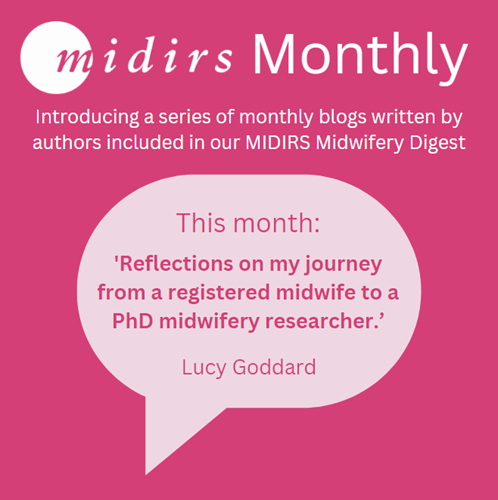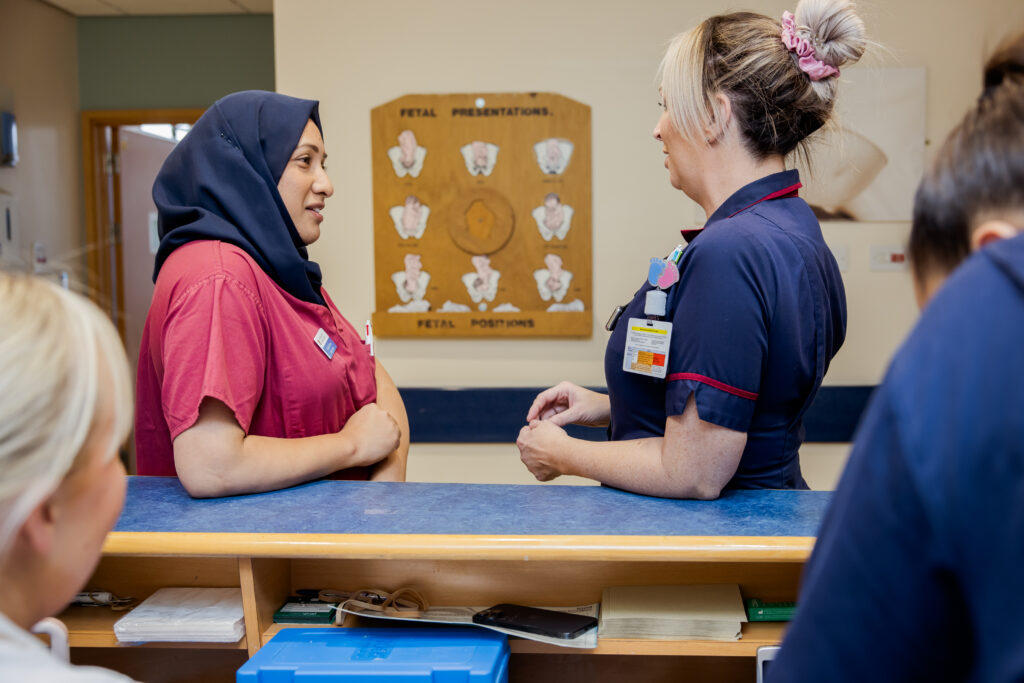When I started out on my PhD journey, I didn’t realise the impact in would have on my views of midwifery and the incredible work that midwives strive to achieve every day. I’ll start from the beginning. I graduated from my Midwifery degree in 2016 and started my career journey in a large tertiary, city hospital. It was unbeknown to me then, that I would divert off the usual course of progression and decided a couple of years later that I wanted to undertake a Masters in Human Nutrition. The reason I had a desire to fulfil this was 2-fold. Firstly, I wanted to broaden my understanding beyond that which I had learnt through my undergraduate degree in the realm of health. Secondly, I had grown interested in the determinants of health, lifestyle factors such as diet and physical activity in particularly, which I felt as health professionals we aimed to promote but was it really making a difference to women’s lives and their pregnancy and birth experiences and outcomes? With this question, I set out to understand more fully the impact of healthy dietary patterns and lifestyle behaviours. Following my Masters degree and continuing to work as a Midwife part time, I started working in a research group that looked at interventions that aim to prevent or manage weight gain in the general population. It was here that I found a PhD opportunity, looking at the self-management of hypertension during pregnancy. Whilst the proposed project didn’t stand out as directly related to weight and lifestyle, I was really motivated to move back towards pregnancy health and I was actively encouraged to apply given my midwife background. As well as this, knowing the relationship between hypertension and lifestyle, this PhD jumped out at me as an opportunity to learn more about what we know about these phenomena and how maternity care pathways may influence women’s knowledge and engagement in healthy behaviours.
As I dropped my clinical hours when I began my PhD, I was keen to work closely with pregnant women but in a different capacity, as a PhD researcher. I thoroughly enjoyed carrying out interviews with women and focus groups with healthcare professionals. As I sat for an hour interviewing a lady on the antenatal ward, I felt privileged to be gifted the time to spend listening to women’s narratives about navigating pregnancy in relation to their diagnosis of high blood pressure. Through interviews I was able to connect with women, using my skills as a midwife, to build a rapport and actively listen to what they had to say. As midwives, we are passionate about providing holistic person-centred care, and this philosophy runs through my research. I therefore believe that as midwife researchers, we have an essential and unique role to play in advocating this within the research that we do, to ensure the evidence base in built from grounded, midwifery philosophies that puts women and birthing people’s voices at the heart of what we do.
As I come to the end of my PhD, I have reflected on how my perspective has changed. My lens on midwifery care and the system in which midwives work has widened, giving me more understanding, and respect, of the influence of the structural and societal systems that have a fundamental role to play in our ability to carry out our role as health promoting midwives. I am thankful I have had the opportunity to have had the time to explore, read and appreciate the field and I believe this will change my practice, both clinically and in research, going forward.
I would be happy to talk to anyone with an interest in carrying out research as a midwife and I am keen to connect with other midwifery researchers.


